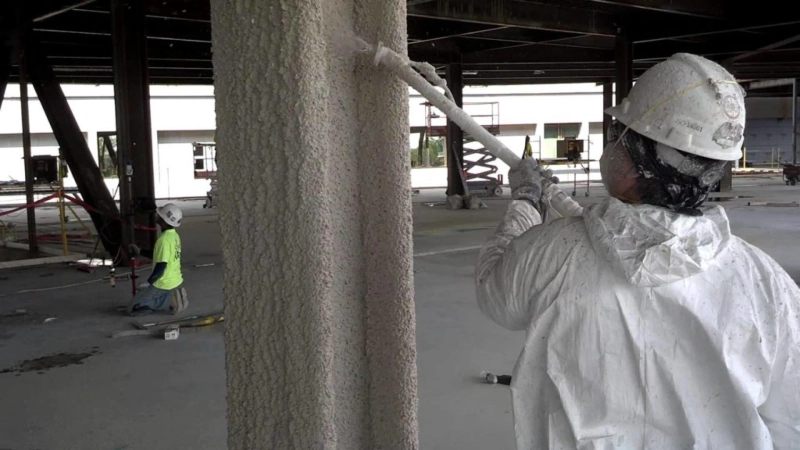Spray foam insulation has become a popular option for homeowners. It's an excellent alternative to traditional fiberglass insulation, which has been used for years. Spray foam insulation is a great way to keep your home warm and cool. It's also an efficient, effective way to insulate your attic, walls, and crawlspace.
Spray foam insulation is made of polyurethane and expands once it's sprayed. It's applied as a liquid and dries into an open-celled foam that can fit irregular spaces. Spray foam insulation is also fire-resistant, which means it doesn't burn quickly during a fire; it's also water-resistant, so it doesn't absorb moisture from the outside environment. Hence you need the best exterior insulation in Toronto to keep your home safe and save money and energy.
There are two types of spray foams: closed-cell and open-cell. Each type has different properties and benefits. Which one should you use? The type of insulation you choose can make a big difference in your home’s energy efficiency. Read on to know more about these spray foam insulation benefits and choose according to your requirements.
Benefits of Open-Cell Spray Foam Insulation
Cost SavingsOpen-cell spray foam insulation is less expensive than closed-cell spray foam because it takes less material to insulate the same space. While it expands more than closed-cell spray foam, it also means less material to insulate the same amount of space.
High Expansion RateOpen-cell spray foam can be installed in hard-to-reach places in attics, walls, and crawlspaces to keep cool and air-conditioned air inside your home while keeping hot air out.
HydrophobicOpen-cell spray foam is hydrophobic (which means it repels water). As a result, open-cell spray foam will not absorb more than 5% of its weight in water, which means that if a leak occurs and the material gets wet, it will not need to be replaced.
Pest DeterrentOpen-cell spray foam insulation does not provide rodent food, so pests cannot burrow in and make their homes in attic or crawlspaces.
Benefits of Closed-Cell Spray Foam Insulation
High R-ValueThis type of insulation provides higher R-values and can help you meet building code requirements if your walls are not thick enough to achieve the desired R-value.
Flood ResistanceClosed-cell spray foam has sturdy, dense cells that do not allow moisture or water to pass through; this is ideal for homes located in flood-prone areas, as moisture penetration can be a problem.
Structural RigidityThe closed-cell spray foam’s rigidity lends additional support to pole buildings. Such homes may need structural support because the earth does not support them.
Final Thought
When choosing between open-cell and closed-cell spray insulation, consider the type of walls in your home, your desired R-value, and your budget. However, both of these options offer excellent benefits, such as air-sealing capabilities, sound dampening, and insulation from extremes in weather. If you want to get the best fire-resistant spray foam insulation, consider hiring Spray Foam Kings professionals. They also offer other services like attic insulation and wall insulation and are reasonably priced. Visit their website to know more.
0


